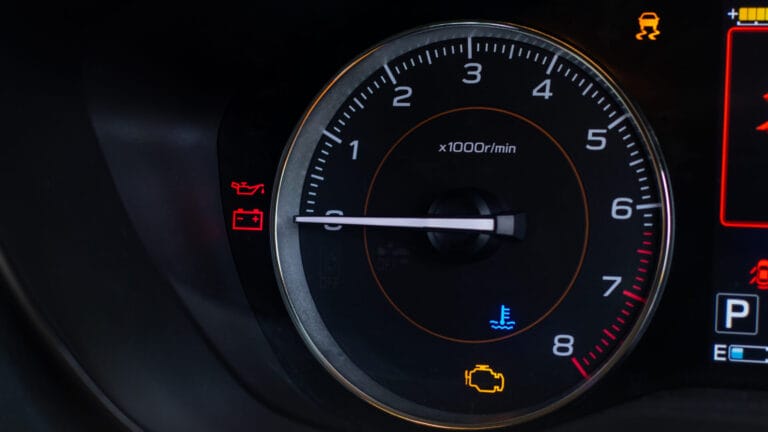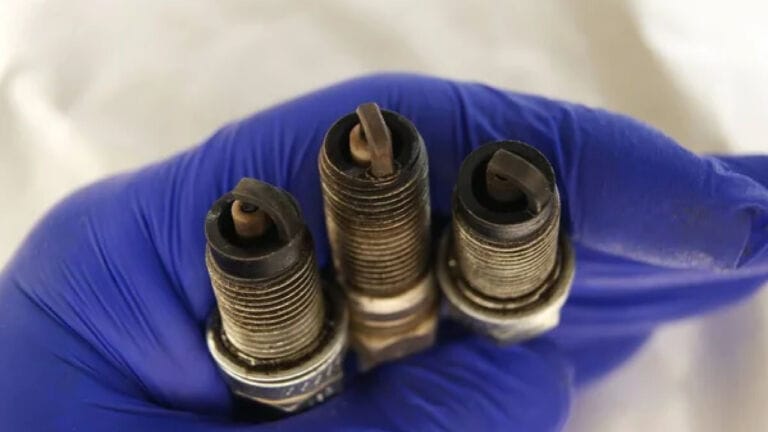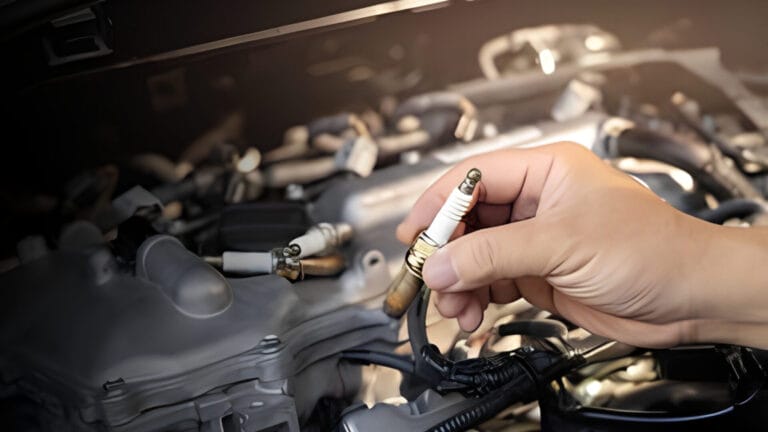What Causes a Spark Plug Electrode to Break Off? 5 Causes
A spark plug isn’t just a plug; it’s a marvel of engineering simplicity. Comprising a ceramic insulator, a metal shell, and a central electrode, this small yet mighty device holds the secret to your engine’s heartbeat.
Now, focus on the electrode—the true star of the show.
As the engine breathes in fuel, the electrode ignites a spark, setting off a controlled explosion that fuels your car’s motion. If the electrode breaks, this spark cannot be created, resulting in reduced power, potential damage to engine components, and even engine misfire. But what causes a spark plug electrode to break off?
Well, the first reason a spark plug electrode can break off is due to being aged (wear and tear). However, improper installation, overheating, or mechanical issues can be the culprits as well. How do these cause the electrode to break off?

Want to dive into details?
Then scroll down and be with me till the end. I will discuss in depth the causes of spark plug electrodes breaking off, how to fix them, and a few tips to avoid this in the future.
What causes a spark plug electrode to break off? 5 Causes
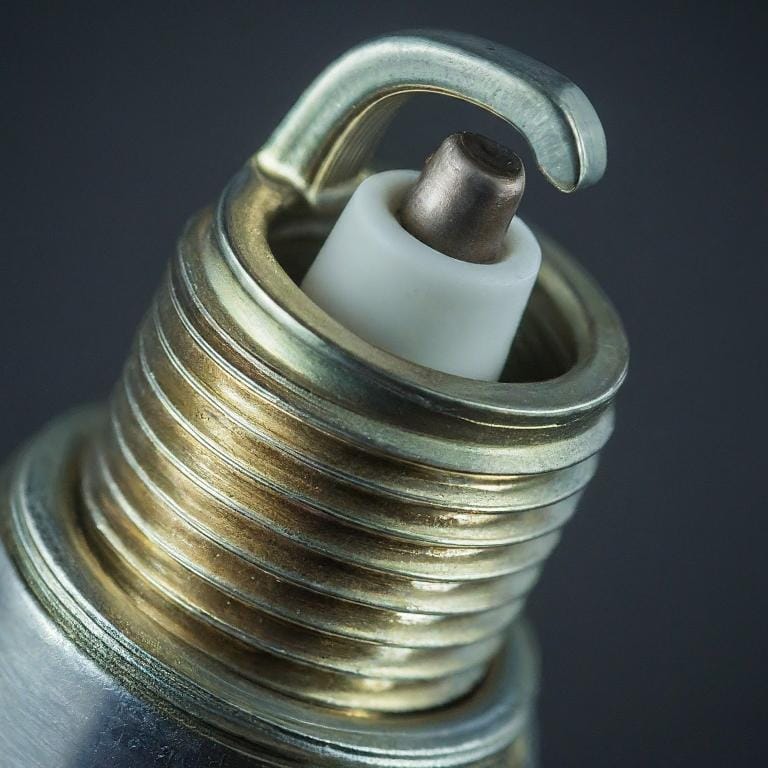
Over-tightening during installation, improper fitting, or physical damage can result in the breakage of spark plug electrodes. Factors such as pre-ignition, detonation, or the accumulation of carbon deposits can also contribute to this issue. Additionally, vibrations, engine misfires, or worn-out components are known culprits for causing spark plug electrode breakage.
Let’s know about the 5 most common causes for a spark plug electrode break-off.
Improper Spark Plug Installation
90% of spark plug troubles are claimed due to a misstep in the installation process. Improper installation and not choosing the right material spark plug are the main culprits behind disrupting the heat-dissipating process from the combustion chamber to the cylinder head.
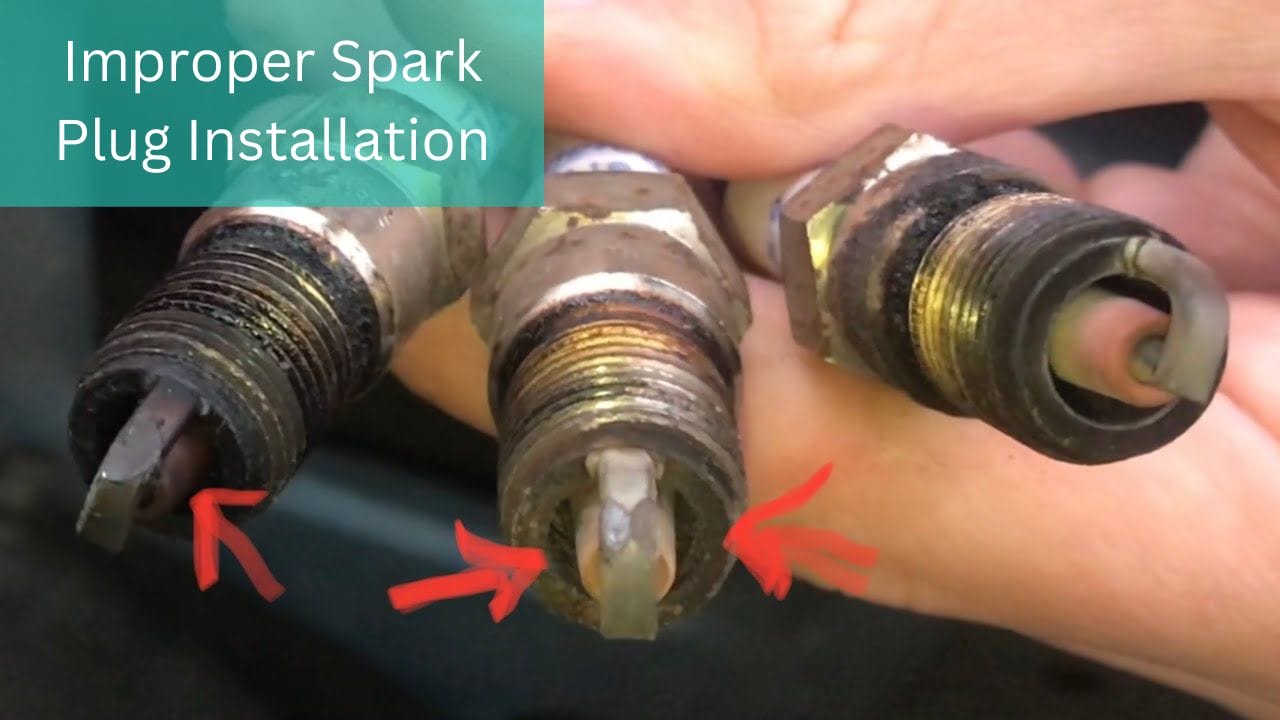
When you use the wrong tools or no tools, like tightening without a torque wrench that corresponds with the torque specified in the spark plug packaging it can lead to under or over-tightening or cross-threading during installation. These improperly gapped spark plugs contribute to electrode damage, impacting the combustion process.
On top of that, if you choose spark plugs with an incompatible reach, this can also result in an improper plug gap that contributes to electrode overheating and eventual breakdown due to improper heat dissipation.
However, lack of adequate lubrication during installation, is another cause of improper installation, resulting in electrode breakage, and affecting the overall function of the spark plug.
Overheating
Overheating is a subtle troublemaker for the spark plug electrode. It throws off the engine’s balance, making the spark plug’s electrode an easy target.

Engine overheating is particularly problematic as it directly contributes to the premature wear and potential breakage of the electrode. When the spark plug gets hot due to excessive temperatures in the combustion chamber, it can cause corrosion, degradation, and ultimately breakage of the spark plug electrode, sometimes melting as well.
Now, picture real-life scenes – idling too long, battling traffic in blistering heat, or pushing your ride without proper cooling. Each scenario cranks up the engine temperature, speeding up wear and tear, and snudging the spark plug’s electrode toward breaking.
Rod Bearing Failure
Rod bearing is the one that connects the piston and crankshaft together. If you don’t lubricate it properly, it can get damaged and fail. And when it wears down or fails, it creates imbalances in the engine’s smooth operation.
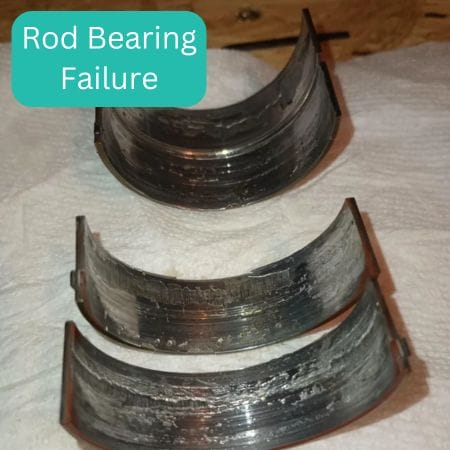
This causes vibrations that reach the cylinder head, and the spark plug undergoes mechanical stress beyond its designed capacity which creates irregularities in its ability to generate a consistent spark. This, in turn, affects the combustion process in the engine, potentially causing misfires or incomplete combustion.
Such issues put additional strain on the spark plug that not only hampers the spark plug’s performance but also causes the electrode to break off and poses the risk of further damage within the engine.
Oil Contamination & Carbon Build-Up
Excessive carbon deposit on the spark plug electrode can hinder the spark plug’s ability to ignite the air-fuel mixture and cause the engine to run rough or misfire, potentially leading to engine damage.
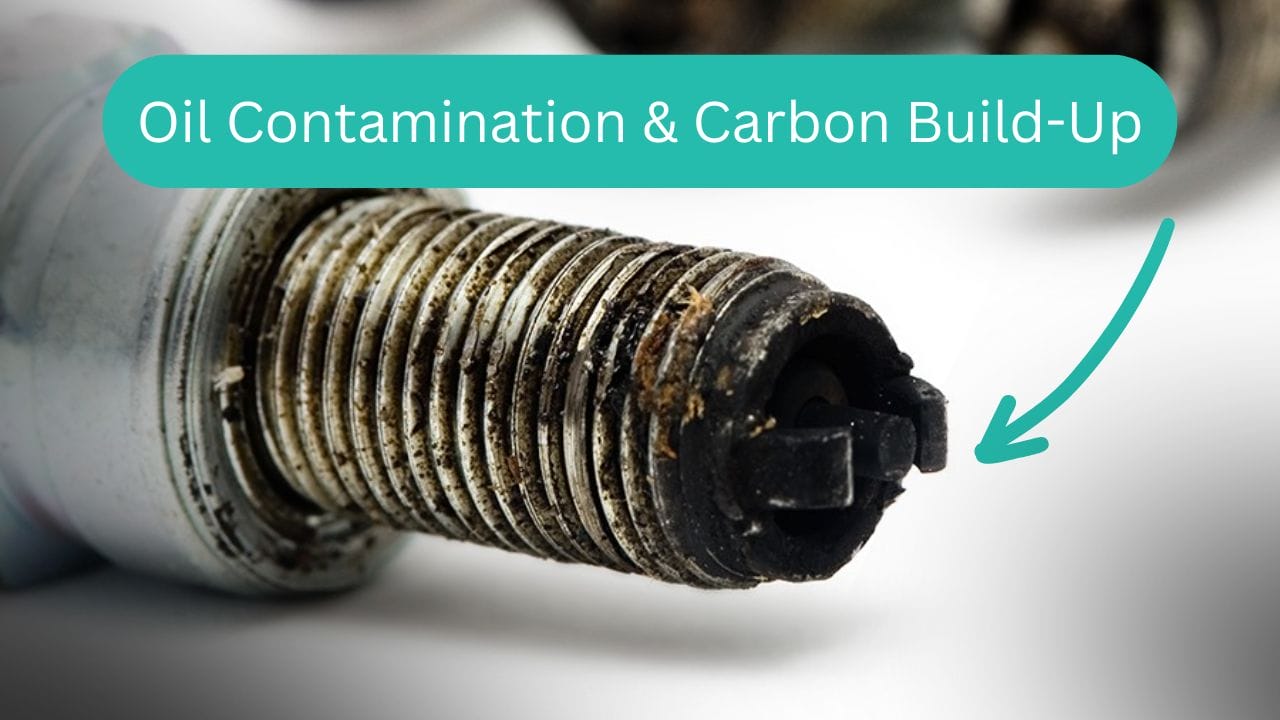
Oil fouling can also lead to spark plug electrode breakage, affecting engine performance. It happens when engine oil finds its way into the combustion chamber due to a leaking gasket or worn piston rings. As a result, the oil coating on the spark plug causes misfiring and further leads to engine damage.
So, you must keep the spark plug area including the cylinder wall clean of any lubricant or carbon buildup, especially around the hole with compressed air and coolant. But never use any chemicals to clean this area, always use manufacturer-recommended cleaners.
Wear and Tear
Over time, the combustion chamber heat can cause spark plug electrodes to gradually wear down, leading to potential issues with engine performance. Factors such as frequent starts, stops, and short trips can expedite the wear and tear of spark plug electrodes, especially after every 20,000-30,000 miles. Additionally, environmental elements like high humidity can result in corrosion of the spark plug electrodes, further contributing to the degradation of their functionality.
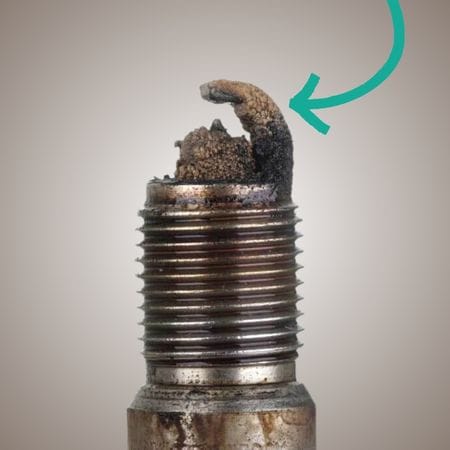
When spark plug electrode wear becomes excessive, it can escalate to misfiring, engine damage, and overheating, ultimately affecting the overall performance of the vehicle.
Symptoms of Spark Plug Electrode Broke Off
Detecting a broken spark plug electrode is crucial for maintaining engine performance. Here are key symptoms that may indicate this issue:
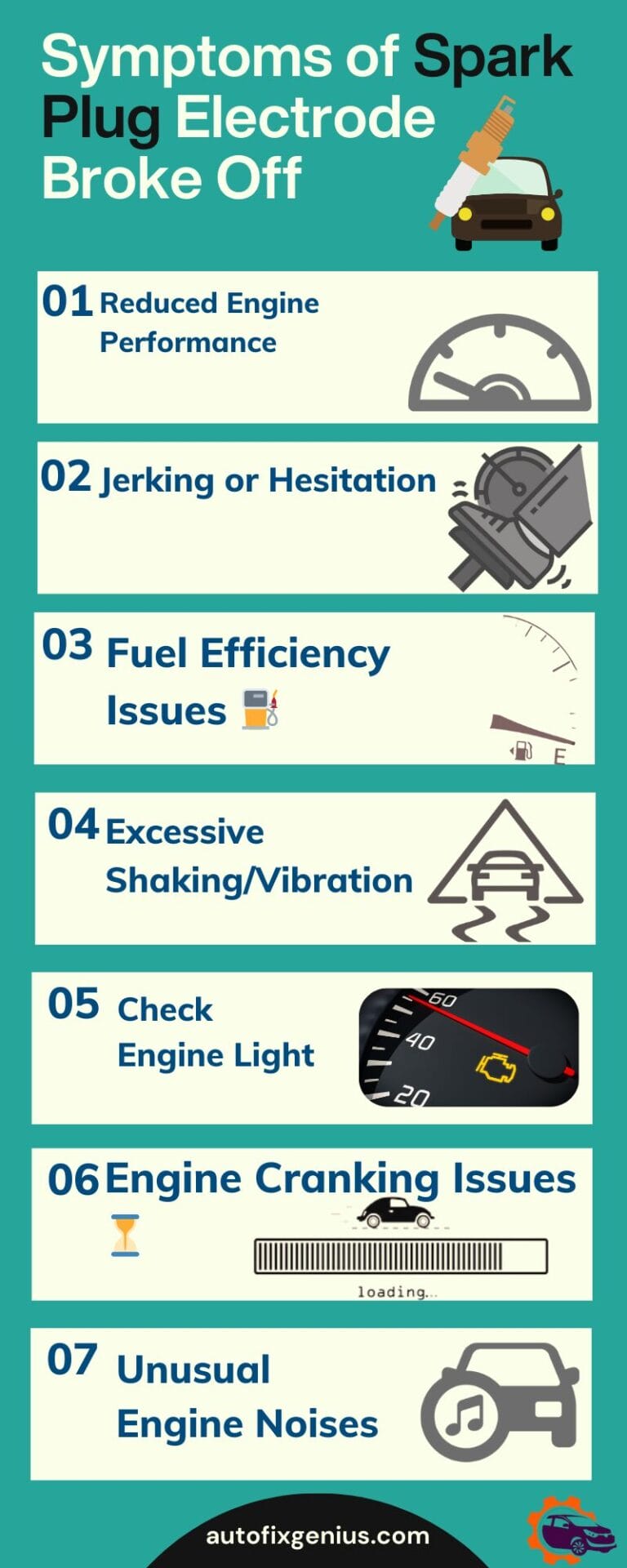
- A noticeable change in the engine’s smooth operation,
- You may feel a sudden, noticeable jerk or hesitation while accelerating,
- You may experience a reduce fuel efficiency, decreased engine power and slower acceleration.
- You may feel excessive shaking or vibrating, especially at idle or low speeds.
- A broken spark plug electrode can trigger the vehicle’s onboard diagnostics system, resulting in the illumination of the check engine light on the dashboard.
- You may experience prolonged cranking or a reluctance of the engine to turn over.
- You will hear unusual sounds such as popping, backfiring, or even a tapping noise from the engine.
If you observe any of these symptoms, it’s advisable to inspect the spark plugs promptly. Identifying and addressing a broken electrode early can prevent further damage to the engine and ensure the longevity and efficiency of your engine.
How Can You Prevent Spark Plug Electrode to Break Off
Proper Installation Techniques
Properly installing spark plugs is essential for maintaining the integrity of your engine. When installing, ensure that the center electrode does not touch the ground electrode to prevent malfunction.
It’s important to match the manufacturer’s torque specifications to properly secure the spark plug into the cylinder head.
Use a torque wrench to tighten the spark plugs to avoid over or under-tightening or cross-threading during installation. Ensure you have used the manufacturer-recommended torque wrench as it may vary depending on thread diameter, cylinder head, seat type, etc. Once tightening is done, you may do hand threading; this helps avoid cross-threading in the engine block, preventing potential damage.
Pay close attention to the spark plug’s orientation during installation to avoid any damage to the electrode. And don’t forget to properly lubricate the components with manufacturer recommended lubricator as lubrication has a role in electrode breakage as well.
Finally, use a gapping tool to properly gap the spark plug electrode before installation for efficient engine performance and longevity.
Choose the Right Spark Plugs for Your Car
When selecting spark plugs, consult the vehicle owner’s manual to identify the recommended type. Consider various factors such as iridium plugs, platinum, ceramic, or copper spark plugs based on the specific requirements of your vehicle. It’s essential to choose high-quality spark plugs with the correct heat range to ensure optimal combustion chamber conditions. However, you have to also ensure that the electrode material aligns with your engine’s combustion chamber too for efficient performance.
Additionally, select spark plugs with the appropriate thread reach and electrode gap that are compatible with your engine.
Regular Maintenance and Inspection
Following the manufacturer’s recommendations, schedule routine spark plug inspections and replacements is also essential to ensure optimal engine performance.
While inspecting the spark plugs, carefully examine the electrode and insulator for any signs of defect, damage, or wear. And be vigilant for indications of detonation, such as damage to the piston, valve, or cylinder head. In case of engine misfires, you can prevent damaging the electrodes by taking immediate action.
Before installing new spark plugs, thoroughly clean the spark plug hole and its surrounding area to maintain the integrity of the spark plug system.
By following these maintenance and inspection practices, you can enhance the longevity and effectiveness of your spark plugs, thus promoting the overall health of your engine.

Frequently Asked Question
Why did my spark plug electrode break?
Your spark plug electrode may break due to overheating, often caused by prolonged engine operation or inadequate cooling. Incorrect installation is another culprit; precision matters to avoid undue stress on the electrode. Mechanical issues, like engine knocking, transmit damaging vibrations to the spark plug. Wear and tear over time can also weaken the electrode, leading to breakage.
What causes the electrode to burn off a spark plug?
Electrode burning on a spark plug typically results from overheating. Extended high temperatures in the engine, often due to a lean air-fuel mixture, inadequate cooling, or advanced ignition timing, can lead to electrode burn-off. Insufficient lubrication or the presence of contaminants in the combustion chamber can also contribute to this issue.
Why would a spark plug electrode melt?
Spark plug electrode melting occurs when the operating conditions expose the electrode to excessive heat. This heightened temperature can stem from factors such as a lean air-fuel mixture, advanced ignition timing, inadequate engine cooling, engine modifications, or using spark plugs with an incorrect heat range. The intense heat softens and distorts the electrode, compromising its structural integrity and eventually melting.
What to do if a spark plug breaks off?
If a spark plug breaks off, it requires careful handling to avoid further damage. Begin by ensuring the engine is off. Use a penetrating oil to loosen any corrosion around the broken plug. If the exposed portion allows, use pliers or a specialized spark plug socket to attempt spark plug wires extraction gently. If unsuccessful, consult a professional mechanic to avoid potential engine damage. Remember, attempting to start the engine with a broken plug may lead to debris falling into the cylinder, causing severe issues.
What are the two most common causes of spark plug failure?
The two most common causes of spark plug failure are fouling and wear. Fouling occurs when deposits, such as carbon or oil, accumulate on the spark plug, hindering its ability to generate sparks. This often happens in engines with incomplete combustion or oil leaks. Wear, on the other hand, is a result of the natural erosion of the spark plug’s electrode over time. Factors like high mileage, extended use of old spark plug, and general wear and tear contribute to electrode erosion.
Closing Words
When it comes to spark plug electrode breakage, understanding the causes is key to preventing this issue in your vehicle. By recognizing common culprits like improper installation, engine knocking, or overheating, you can take proactive steps to safeguard your spark plugs. Remember, a small component like a spark plug can have a big impact on your car’s functionality.
But don’t worry, with a bit of know-how and regular check-ups, you become the maestro of your car’s melody, making sure it runs smoothly. Keep an eye on your engine’s tune, and Autofixgenius will keep sharing tips for a trouble-free ride!

